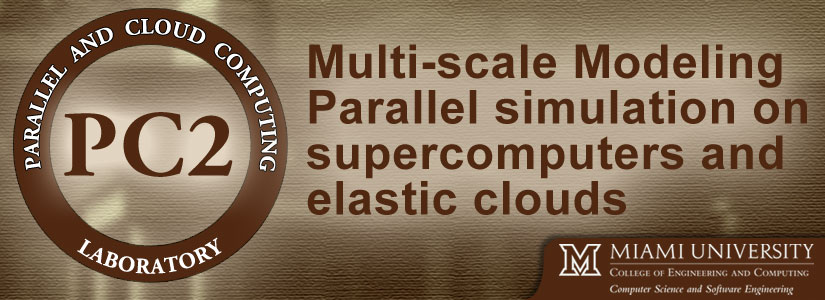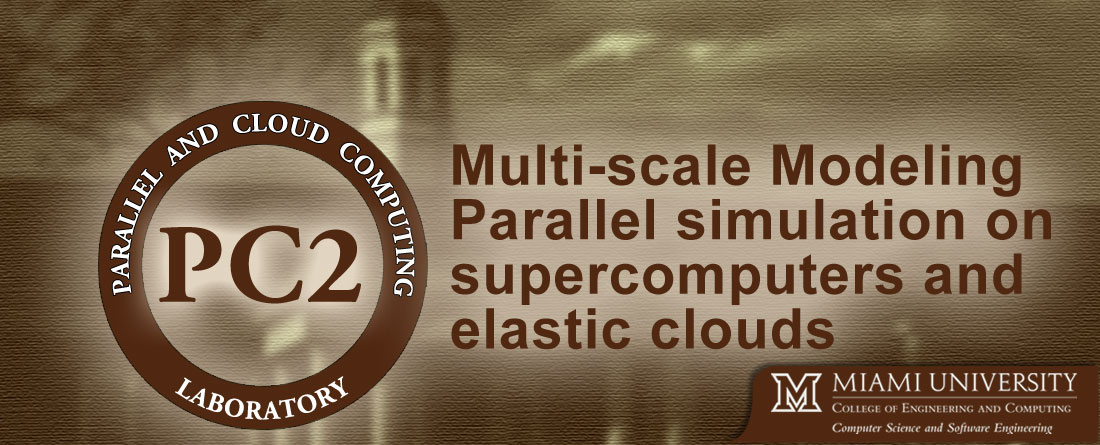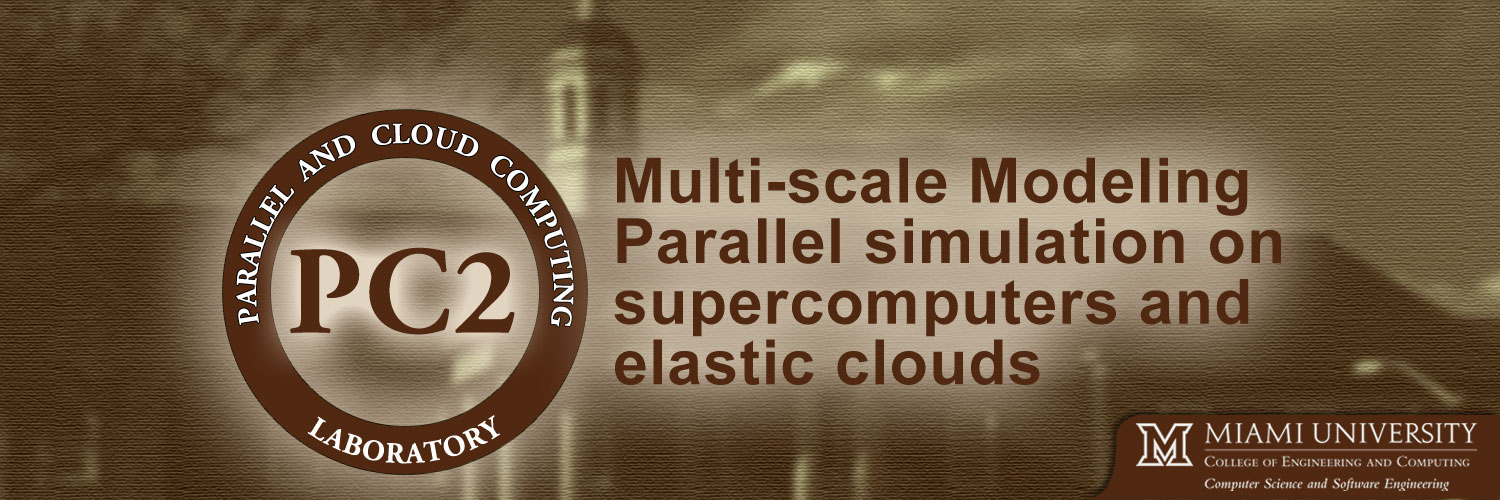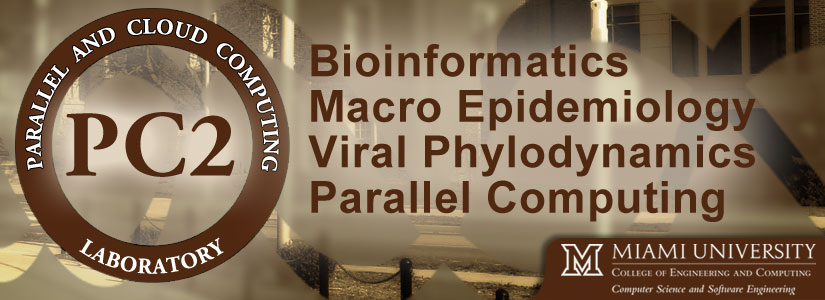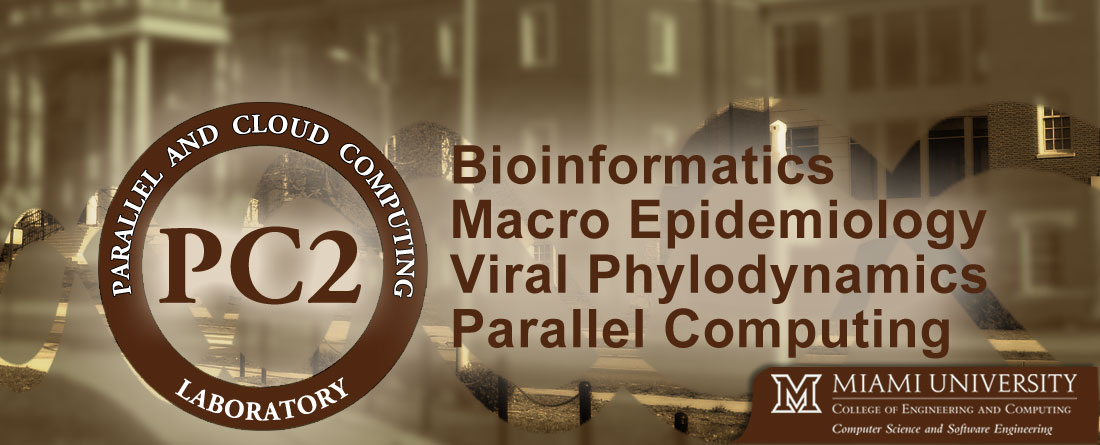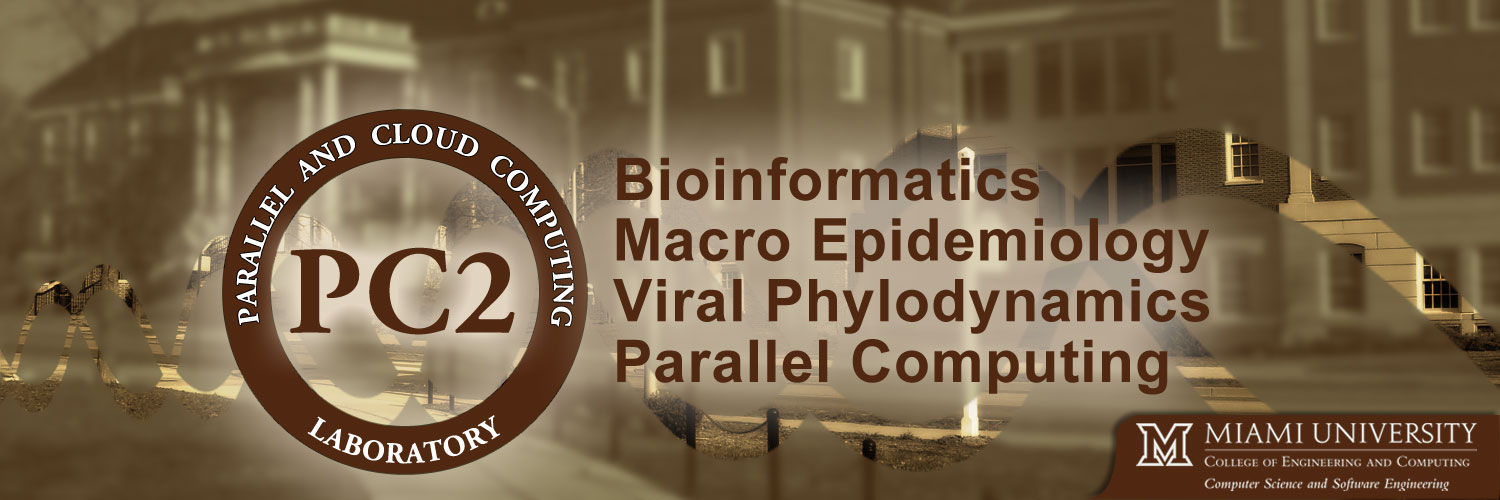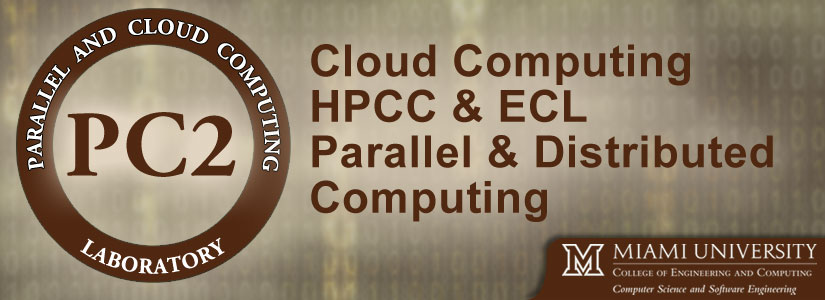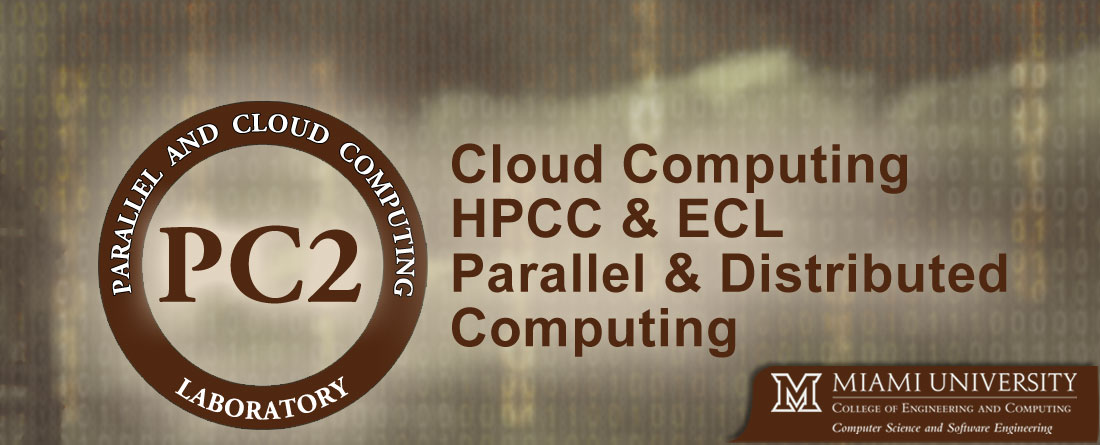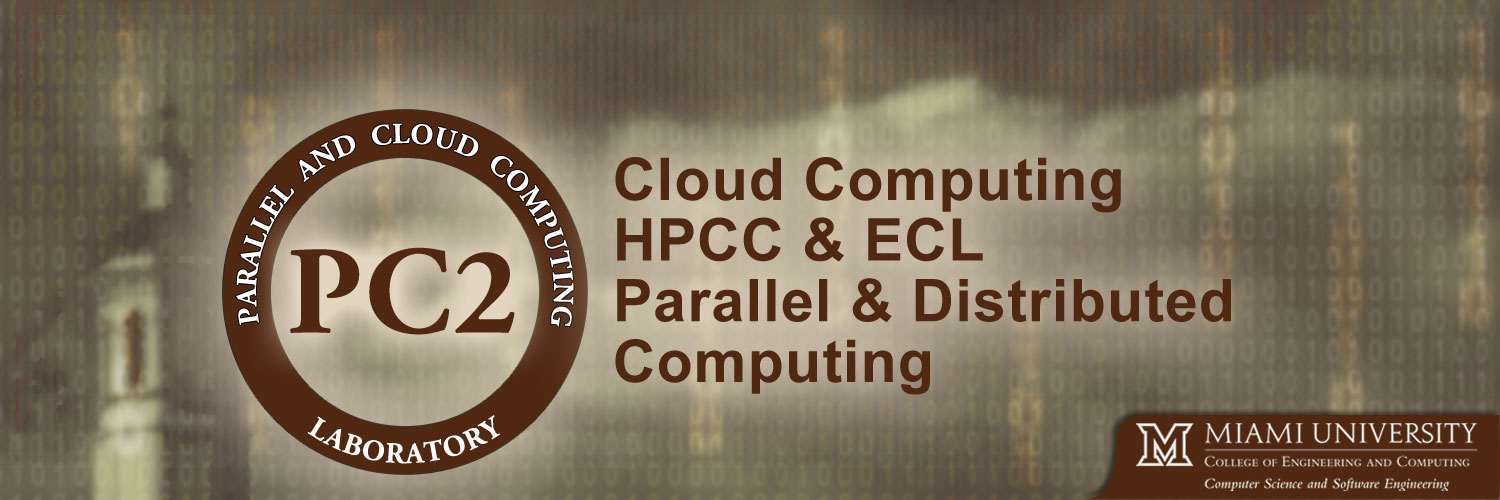About PC2 Lab
The Parallel and Cloud Computing (PC2) Laboratory is a multifaceted research body that consists of and is fostered by computational scientists pursuing a variety of scientific research involving parallel, distributed, and cloud computing. The researchers in the lab include faculty members at Miami University, graduate students, undergraduate students, and even high school students who work in a collaborative environment pursuing their passions while contributing to the following mission of PC2 Lab:
The mission of the Parallel and Cloud Computing (PC2) Laboratory is to pursue multidisciplinary scientific research to discover and disseminate turnkey knowledge, novel methodologies, and comprehensive solutions to address challenges in various disciplines of computational science and engineering.
The PC2 Lab is part of the Computer Science and Software Engineering (CSE) Department in the College of Engineering and Computing (CEC) at Miami University. Links to the department, college, and university are below.
CSE Department College of Engineering & Computing Miami University
Research Areas Of Interest
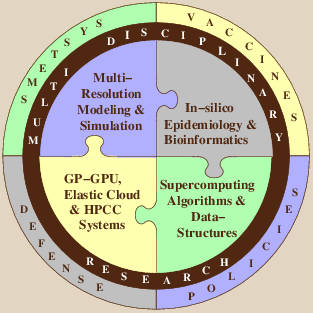
The discipline of parallel, distributed, and cloud computing and its application to various fields that are encapsulated under the broad umbrella of computational science. Many of the past and ongoing research investigations conducted by the lab is largely driven by the vision and passion of its members including the graduate and undergraduate students. The adjacent figure highlights some of the major areas of research and the interplay between the multidisciplinary areas. The research endeavors pursued by PC2 Lab also aim to seamlessly integrate various multidisciplinary efforts to provide a comprehensive platform for in silico laboratory for conducting scientific computational research.
Currently, the PC2 Lab is pursuing multidisciplinary research in the following areas:
- Optimistic parallel simulation
One of the primary focus areas of PC2 Lab is in parallel simulation, specifically optimistically synchronized parallel simulations. A product of these efforts is the Miami University Simulation Environment (MUSE), a software system which provides a general purpose framework for developing agent-based models and efficiently simulating large systems on supercomputers and compute clusters. An integral aspect of this research includes design and development of distributed data structures and parallel algorithms that improve efficiency of parallel simulations.
- Elastic Cloud Computing and HPCC
Researchers in PC2 Lab are actively exploring effective use of state-of-the-art elastic cloud computing solutions in which machines can be dynamically added or removed to adapt computational resources to suit the dynamic nature of the software running on them. Furthermore, the lab is exploring effective use of a novel, cloud capable High Performance Computing Cluster (HPCC) platform. HPCC is a massive parallel-processing computing platform designed to solve Big Data and Data Analytic problems.
- Bioinformatics and Parallel Processing
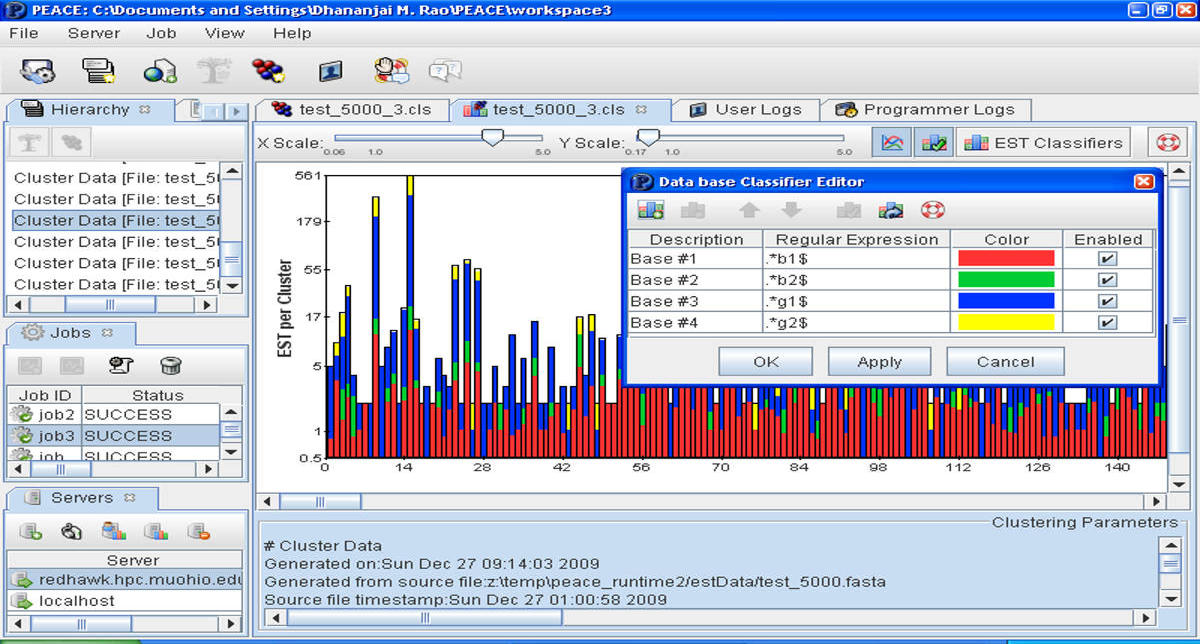
One of the core computational science areas that has rightfully garnered strong emphasis from the Lab in collaboration with other researchers at Miami University. Although the Lab's primary focus is on applying parallel, distributed, and cloud computing to bioinformatics, the lab also pursues research on discovering novel algorithms for bioinformatics. The user-friendly and feature rich Parallel Environment for Assembly and Clustering of Gene Expressions (PEACE) is a prominent product of the ongoing bioinformatics research conducted in PC2 Lab. PEACE streamlines the process of clustering and assembly of gene expression on supercomptuing platforms.
- Macro Epidemiology and Ecological Analysis
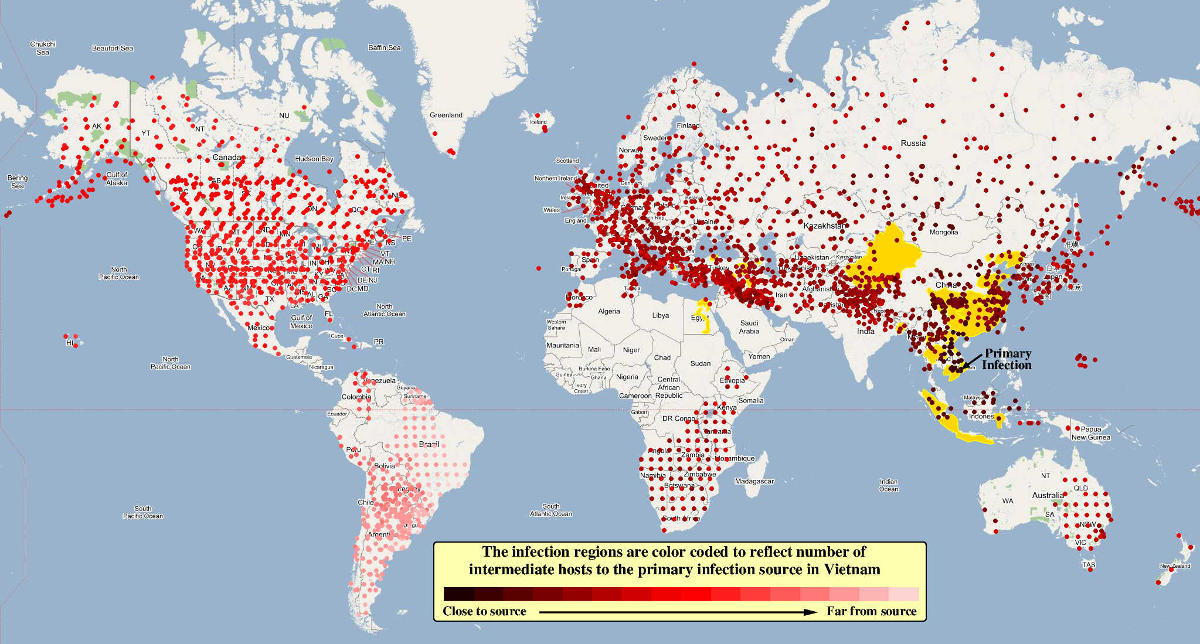
Epidemiology is the study of the causes, spread, and control of diseases that heavily relies of simulations for conducting a variety of complex analysis on large populations. PC2 Lab has a long running research endeavor to enable effective epidemiological and ecological analysis of global epidemiological characteristics of diseases. Specifically, the lab's case studies have focused on zoonotic diseases, specifically avian influenza and swine flu, which cause significant annual morbidity and mortality to humans and livestock across the world resulting in billions of dollars of economic hardships. Read more about our successes in our publications and our product called SEARUMS, which provides comprehensive environment for epidemiological and ecological modeling and simulation.
- Large Scale and dynamic, multi-scale Modeling
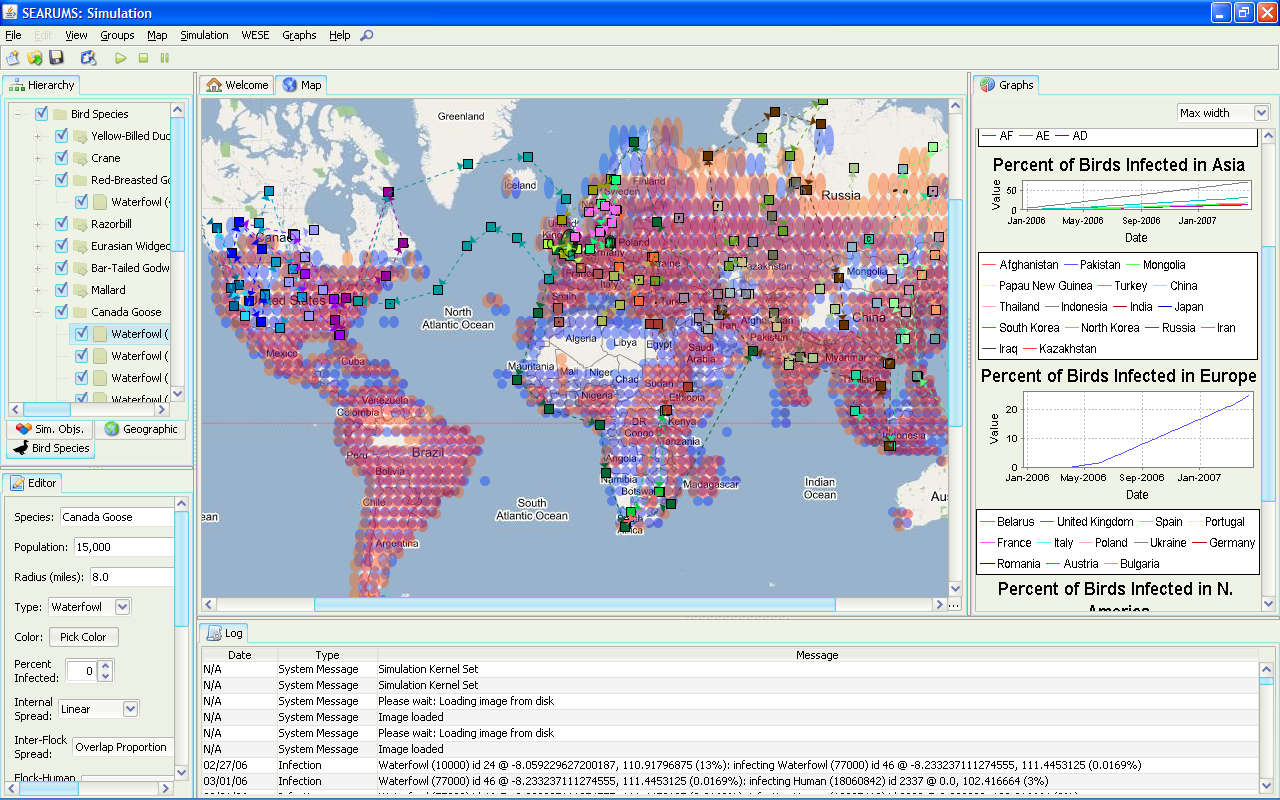
The lab's efforts on parallel and distributed simulations are complemented by efforts to generate high fidelity, high resolution models that enable a variety of detailed analyses to be conducted. The lab is actively involved in automatic generation of simulation models from satellite telemetry, census counts, and other comprehensive data sets. Such efforts fall into the cateogy of Big Data analytics and the lab is pursuing novel cloud computing approach to effectively meet the computational challenges in this area of research. The lab is also pursuing research to develop sophisticated tools to aid with analysis of Big Data problems in collaboration with various industry partners.
Joining and Working in PC2 Lab
The PC2 Lab takes pride in pursuing scientific research using state-of-the-art parallel, distributed, and cloud computing technologies. The diverse multifaceted, multidisciplinary, and cutting edge research efforts purused by PC2 Lab attracts some of the most talented and passionate individuals committed to pursuing research endeavors to advance scientific knowlege to help the community at large in various ways. Furthermore, the lab's active collaboration with industry partners seamlessly integrates unique professional experiences and industrial opportunities which provide a comprehensive and well rounded educational experiences.

Join the PC2 Lab
The PC2 Lab actively seeks to involve budding computational scientists who embody the core values of the lab's culture, namely: passion, high level of self motivation, and commitment to actively pursue research. Graduate, undergraduate, and high school students who would like to pursue research in PC2 Lab are encouraged to email their resume to Dr. Rao for consideration.
The community of researchers working in the Lab are passionate, highly self motivated, and committed individuals who are pursuing specific research goals while continuing to operating as a cohesive team. Undergraduate and high school students typically work in collaboration with graduate students. All of the lab members have access to a broad range of computational resources including Miami University's Red Hawk computational cluster and two supercomputers at the Ohio Supercomputer Center with more than 8300 cores! Graduate students have even designed and assembled their own computational clusters to run the LexisNexis HPCC Software System.
